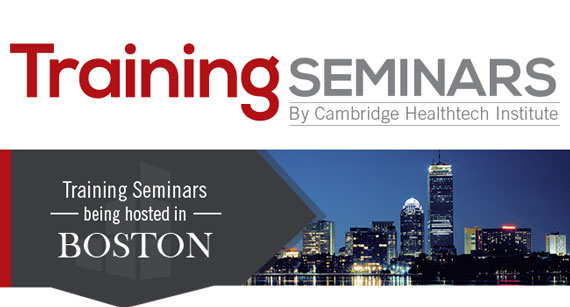
Thursday, August 24 - Friday, August 25, 2017
DAY 1: 2:00 - 5:15 pm | DAY 2: 8:30 am - 3:15 pm
Instructor: Jean-François Hamel, Ph.D., Academic Researcher and Instructor, Chemical Engineering Department, Massachusetts Institute of Technology; Biotech Programs, Northeastern University
Introduction
This activity-packed course focuses on the science, technologies and strategies needed to understand and implement an effective downstream process for biological development and production. The course begins with an in-depth look at DSP design and development - from recovery to purification to formulation - before moving onto pertinent issues surrounding HTPD, single-use systems, continuous processing, PAT, viral clearance, platform development, process validation and bioprocess simulation. The course with be based on real-world examples from downstream development projects for both traditional and emerging modalities. Students will learn through on-site exercises and use of computational tools.
Course Outline
Part 1: Intro and DSP Principles
- Process design: The first steps
- Development of purification strategies
- Interactions with cell culture
- Recovery to purification to formulation
- High throughput process development (HTPD)
- Single-use technologies
Part 2: Recovery and Purification
- Harvest step
- Virus clearance in downstream process of cell culture-based therapeutics
- Centrifugation
- Chromatography
- Purification using column chromatography, membrane chromatography, ultrafiltration
- Extraction
Part 3: Real-Time Batch and Continuous Biomanufacturing
- Process information options for real-time data archiving, monitoring and process control
- Learning unit operations with Operator Training Simulation in the virtual environment
- Computer simulation tools for complete process design and economic analysis
- Process validation
- Quality by Design and Critical Process Parameters
- Analytics and PAT solutions
 Jean-François Hamel, Ph.D., Academic Researcher and Instructor, Chemical Engineering Department, Massachusetts Institute of Technology; Biotech Programs, Northeastern University
Jean-François Hamel, Ph.D., Academic Researcher and Instructor, Chemical Engineering Department, Massachusetts Institute of Technology; Biotech Programs, Northeastern University
Jean-François teaches biological and bioprocessing engineering laboratory courses and is a research engineer in MIT’s Chemical Engineering Department, a part-time faculty at Northeastern University, and an industry consultant. He has studied original upstream and downstream problems in varied microbial and cell culture processes, at the bench (down to µL) and pilot scales (up to 1,500 L), and integrated advanced analytical technologies for process improvement. He was the Core Lab Manager of the BioProcess Engineering Center (funded by the NSF) and led bioprocess engineering programs there. In his teaching and research Jean-François has had the opportunity to beta-test or evaluate novel technologies, such as the first rock-bed single-use bioreactor and portable microbial flow cytometer, in-situ glucose and O2/CO2 optical sensors, auto-samplers, modular analyzers, expanded-bed chromatography, and computer simulation tools. His current projects focus on biofuels from microalgae and yeast, vaccine antigen and monoclonal antibody from mammalian cells, stem cells, and proteins from microbes, which have been studied in traditional or single-use bioreactors. Jean-François received a MS in Biochemical Engineering from MIT, and a PhD from the Pierre and Marie Curie University (part of “Sorbonne Universités”).
Training Seminar Information
Each CHI Training Seminar offers 1.5 days of instruction with start and stop times for each day shown above and on the Event-at-a-Glance published in the onsite Program & Event Guide. Training Seminars will include morning and afternoon refreshment breaks, as applicable, and lunch will be provided to all registered attendees on the full day of the class.
Each person registered specifically for the training seminar will be provided with a hard copy handbook for the seminar in which they are registered. A limited number of additional handbooks will be available for other delegates who wish to attend the seminar, but after these have been distributed, no additional books will be available.
Though CHI encourages track hopping between conference programs, we ask that Training Seminars not be disturbed once they have begun. In the interest of maintaining the highest quality learning environment for Training Seminar attendees, and because Seminars are conducted differently than conference programming, we ask that attendees commit to attending the entire program, and not engage in track hopping, as to not disturb the hands-on style instruction being offered to the other participants.
